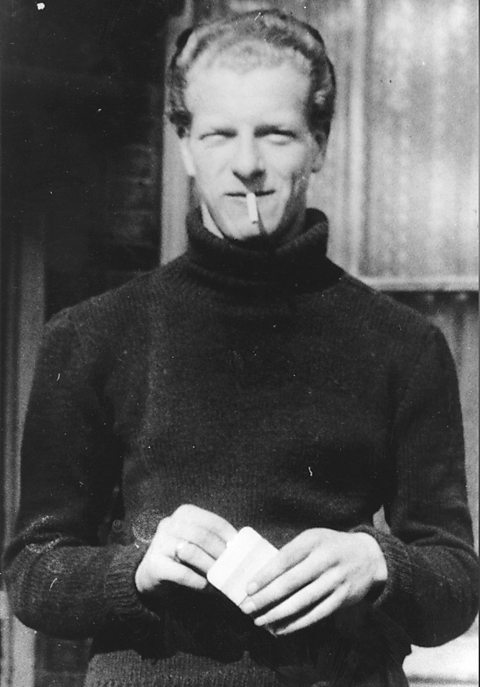Derek Bentley and the death penalty
In the early 20th century, the use of the death penalty continued. It had been the most serious punishment available since c.1000. Pressure to end the death penalty increased from the 19th century.
The Derek Bentley case
In 1953, Derek Bentley was hanged for the murder of a policeman. This case was an important turning point in the campaign to abolish the death penalty.
Events

In 1952 Derek Bentley, a 19-year-old with severe learning difficulties, was caught burgling a warehouse in London with a friend, Chris Craig. Craig was carrying a gun and Bentley carried a sheath knife and knuckleduster. When the police arrived to arrest both men, Bentley shouted ‘Let him have it, Chris’ and Craig fired the gun, injuring Detective Sergeant Fairfax. Bentley did not use his own weapons and did not try to escape arrest. Craig continued to shoot as more officers attended. One police constable was shot and killed before Craig jumped from the roof and injured himself.
Trial and judgement
Bentley and Craig were both charged with murder under a charge of joint enterprise Criminal charge that permits two or more defendants to be charged and convicted of the same offence in relation to the same incident. Bentley faced the death penalty if found guilty, but Craig did not because he was under the age of 18. During the trial, Bentley and Craig denied that Bentley had said ‘Let him have it’. Bentley’s lawyer argued that, if he had said it, he could have been encouraging Craig to hand over the gun. Some people also felt that Bentley should not have given evidence due to his learning difficulties.
Bentley was found guilty and sentenced to death. The jury asked for mercy for him, and his lawyer’s appeals were turned down. Craig was imprisoned and not released until 1963.
Reaction
Bentley’s sentence caused a public outcry. Two hundred MPs signed a memorandum A written message used in negotiations. asking the Home Secretary, Sir David Maxwell Fyfe, to cancel the execution. However, this was refused. On the day Bentley was hanged in January 1953, 5,000 protesters outside the prison chanted ‘murder’. This public outcry contributed to the argument against the death penalty. Many argued that Bentley’s case had been a miscarriage of justice The failure of a court that results in the conviction of an innocent person. and criticised the use of capital punishment.
In 1998, Bentley’s conviction for murder was set aside by the Court of Appeal and he was pardonThe action of forgiving an individual for an error or offence.
The abolition of the death penalty
Pressure to end the death penalty increased throughout the 20th century. There were arguments on both side of the debate:
| For the death penalty: | Against the death penalty: |
|
|
| For the death penalty: |
|
|---|---|
| Against the death penalty: |
|
Two other high-profile cases helped to turn the government against the use of the death penalty:
- Timothy Evans confessed to murdering his wife after she had an illegal abortion carried out by their landlord, John Christie. Christie said that Evans’ wife died from the abortion when he had in fact killed her. Evans confessed and was hanged in 1950 after changing his story many times. Christie was later convicted of the murders of eight other women, and it was clear that Evans was innocent.
- Ruth Ellis was the last woman to be hanged, in July 1955. She was found guilty of shooting David Blakely, a man she had been in an abusive relationship with. She had been beaten and had had a miscarriage. Ellis was guilty but there was lots of public sympathy for her situation.
More guides on this topic
- Crime and punishment in Britain overview - Edexcel
- Crime and punishment in medieval England, c.1000-c.1500 - Edexcel
- Crime and punishment in early modern England, c.1500-c.1700 - Edexcel
- Crime and punishment in 18th- and 19th-century Britain - Edexcel
- Crime and punishment in Whitechapel, c.1870-c.1900 - Edexcel